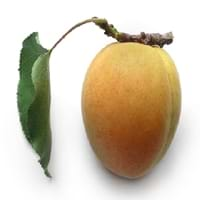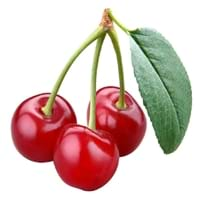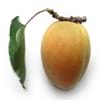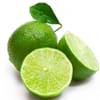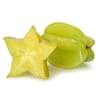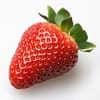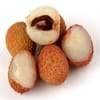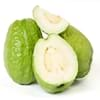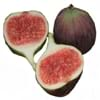Health Benefits
Asthma treatment, Cancer prevention, Controls blood pressure, Digestive aid, Heart care, Maintains hormonal balance, Regulation of heart rate, Skin cleansing, Skin rejuvenation
Arthritis prevention, Cancer prevention, Gout treatment, Regulation of heart rate, Treatment of osteoarthritis
General Benefits
Boosts immune system, Controls blood pressure, Digestive aid, Eye care, Maintains healthy cholesterol level, Strengthens bones
Anti oxidant properties, Anti-inflammatory properties, Controls blood pressure, Cures headache, Digestive aid
Skin Benefits
Hydrates skin, Reduces wrinkles, Treatment of dark spots, Treatment of skin diseases
Anti-aging benefits, Brightens and lightens complexion, Skin rejuvenation, Treatment of dark spots
Hair Benefits
Good conditioner, Regulates hair growth, Rejuvenates scalp, Softening mask, Treatment of dandruff
Acts as moisturizer, Protects hair, Regulates hair growth, Rejuvenates scalp
Allergy Symptoms
Abdominal cramps, Anaphylaxis, Breathing difficulty, Diarrhea, Itching of mouth, Itching sensation in throat, Swelling of mouth, tongue or lips, Vomiting, Wheezing
Anaphylaxis, Breathing difficulty, Fainting, Itching, Nasal congestion, Nausea, Swelling of mouth, tongue or lips, Tingling sensation in mouth, Vomiting, Wheezing
Side Effects
Dizziness, Headache, Nausea, Vomiting
Abdominal cramps, Allergic reaction, Bloating, Intestinal gas
Best Time to Eat
Best if taken as a breakfast (or empty stomach), As a snack in the late afternoon, Don't consume at night and before bed, Eat the fresh ones, avoid mixing with any other foods, don't eat after meal.
Best if taken as a breakfast (or empty stomach), As a snack in the late afternoon, Don't eat after meal, Morning time (before lunch)
Vitamin B5 (Pantothenic Acid)
Vitamin C (Ascorbic Acid)
Vitamin K (Phyllochinone)
Phytosterol
Not Available
Calories in Fresh Fruit with Peel
Calories in Fresh Fruit without Peel
Not Available
Not Available
Calories in Frozen Form
Not Available
Type
Tree fruit
Tree fruit
Varieties
Gold Cot, Tilton, Wenatchee, Goldbar, Gold Kist, Tomcot, Harcot, Brittany Gold, Harglow, Hunza, Moorpark, Patterson and Royal Rosa
Evan, Mesabi, Meteor, Northstar, Montmorency and Mongolian
Color
Orange, Yellowish-orange
Red
Taste
Smooth, Sweet
Sweet-Sour
Origin
China
Europe, Western Asia
Soil Type
Well-drained
Sandy
Climatic Conditions
Dry, Hot
Cold
Facts about
- 9 Jan is considered as the National Apricot Day.
- Apricots have been around for more than 4000 yrs.
- In latin, the meaning of apricot is 'precious'.
- 95% of apricots in the US are produced by California.
- Using 1/4 tablespoon of almond extract with cherries, brings out the real flavor of cherries.
- In earlier times, serving cherry pie with ice cream was prohibited.
- 23 April is National cherry cheese cake day.
Top Producer
Turkey
Turkey
Other Countries
Algeria, Egypt, France, Iran, Italy, Morocco, Pakistan, Spain, Uzbekistan
Albania, Armenia, Austria, Azerbaijan, Belarus, Croatia, Denmark, Germany, Hungary, Iran, Italy, Macedonia, Moldova, Poland, Russia, Serbia, Ukraine, United States of America, Uzbekistan
Top Importer
United States of America
Germany
Top Exporter
France
Poland
Botanical Name
Prunus armeniaca
Prunus cerasus
Synonym
Not Available
Not Available
Subkingdom
Tracheobionta
Tracheobionta
Division
Magnoliophyta
Magnoliophyta
Class
Magnoliopsida
Magnoliopsida
Species
P. armeniaca
P. cerasus
Difference Between Apricot and Sour Cherry
We might think that Apricot and Sour Cherry are similar with respect to nutritional value and health benefits. But the nutrient content of both fruits is different. Apricot and Sour Cherry Facts such as their taste, shape, color, and size are also distinct. The difference between Apricot and Sour Cherry is explained here.
The amount of calories in 100 gm of fresh Apricot and Sour Cherry with peel is 48.00 kcal and 50.00 kcal and the amount of calories without peel is Not Available and Not Available respectively. Thus, Apricot and Sour Cherry belong to Low Calorie Fruits and Low Calorie Fruits category.These fruits might or might not differ with respect to their scientific classification. The order of Apricot and Sour Cherry is Rosales and Rosales respectively. Apricot belongs to Rosaceae family and Sour Cherry belongs to Rosaceae family. Apricot belongs to Prunus genus of P. armeniaca species and Sour Cherry belongs to Prunus genus of P. cerasus species. Beings plants, both fruits belong to Plantae Kingdom.
